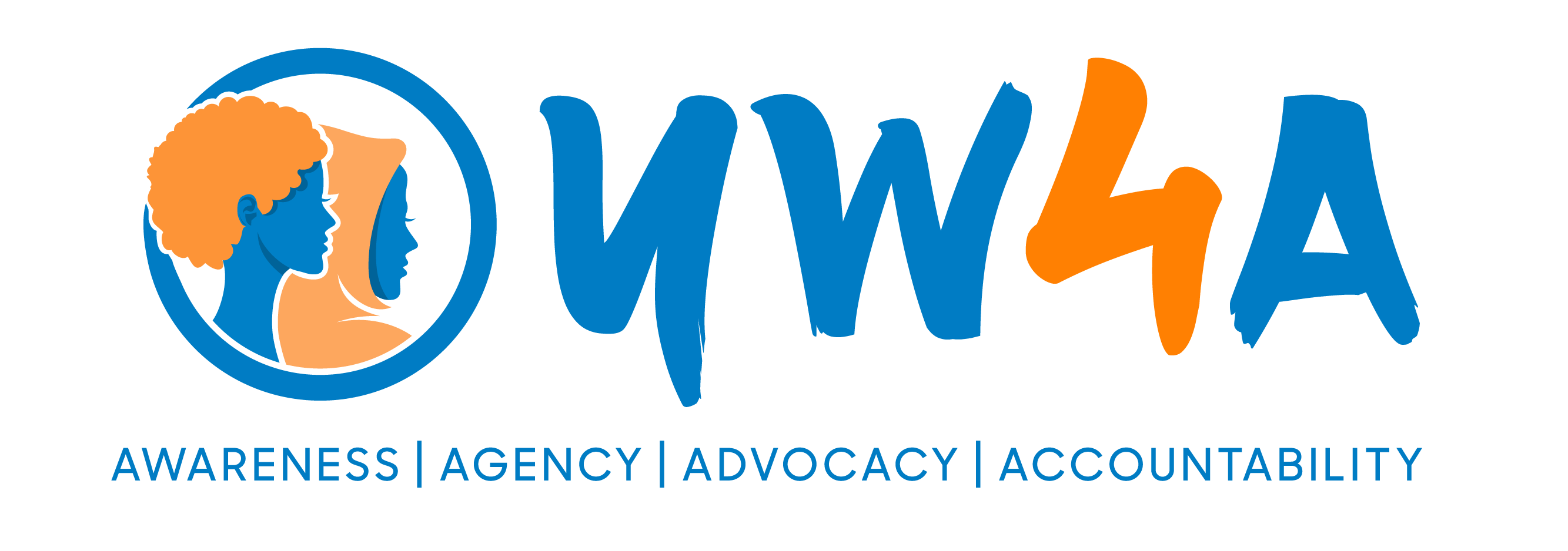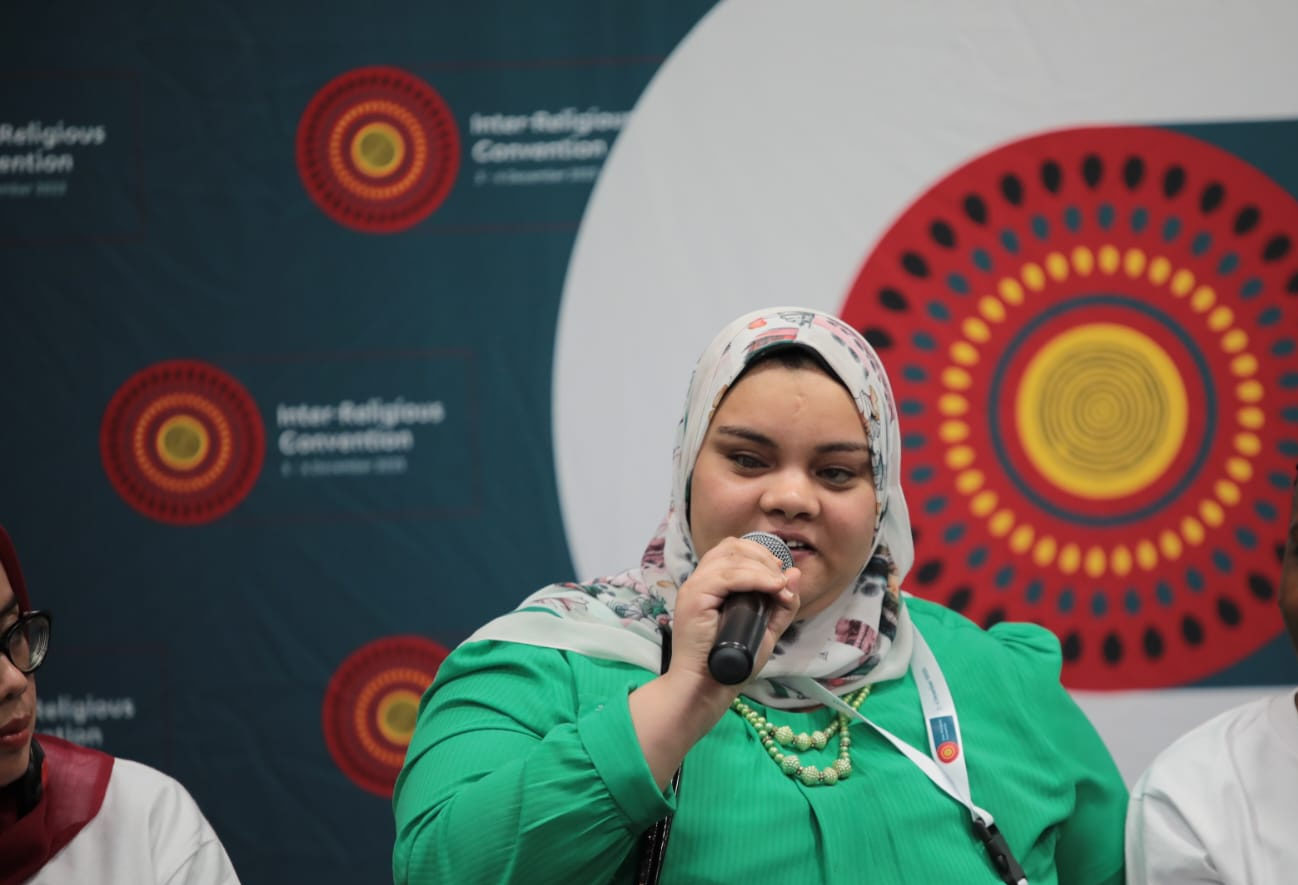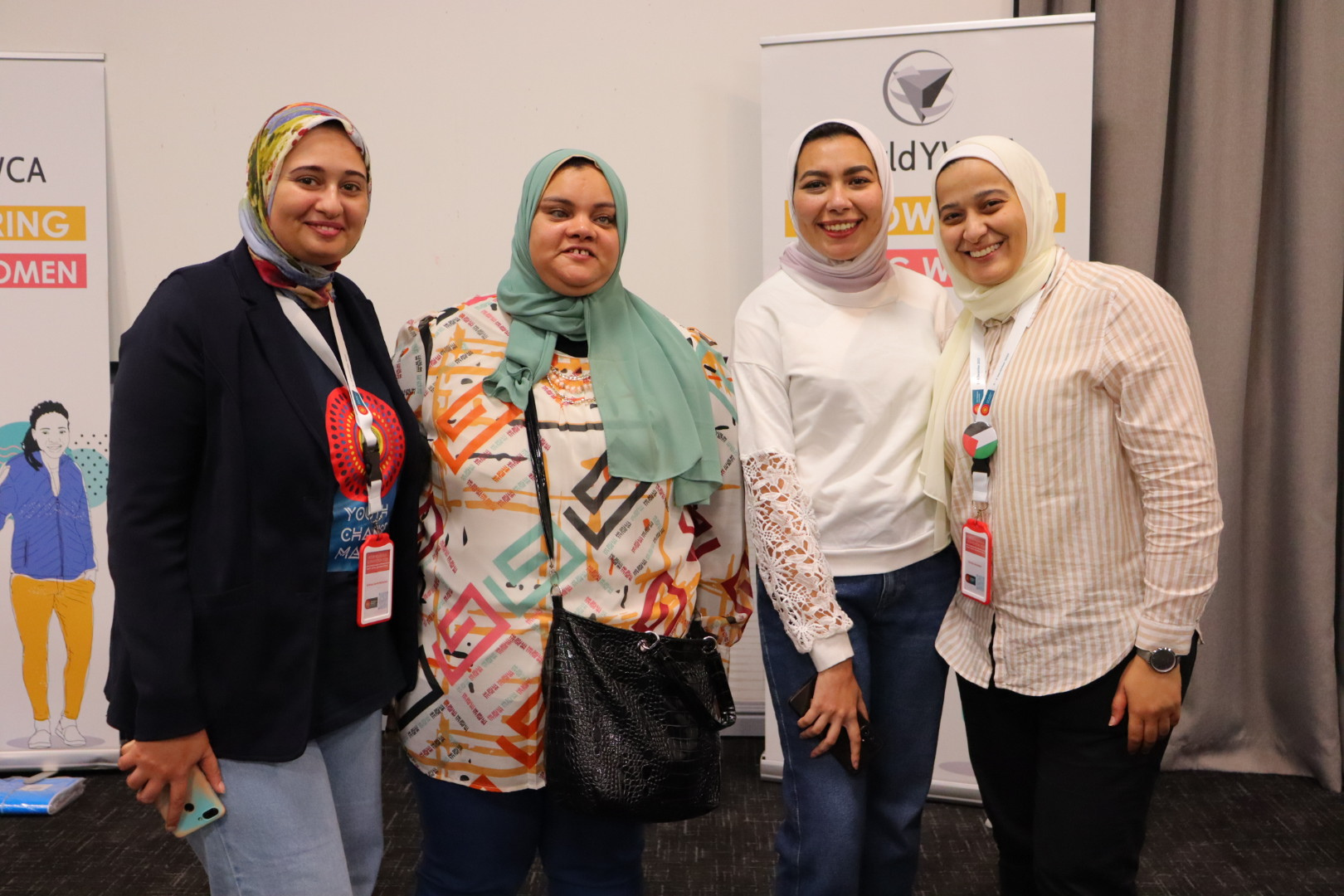Born in Alexandria, Egypt, Samia Aboul el Fotouh is a human rights activist and a lawyer.
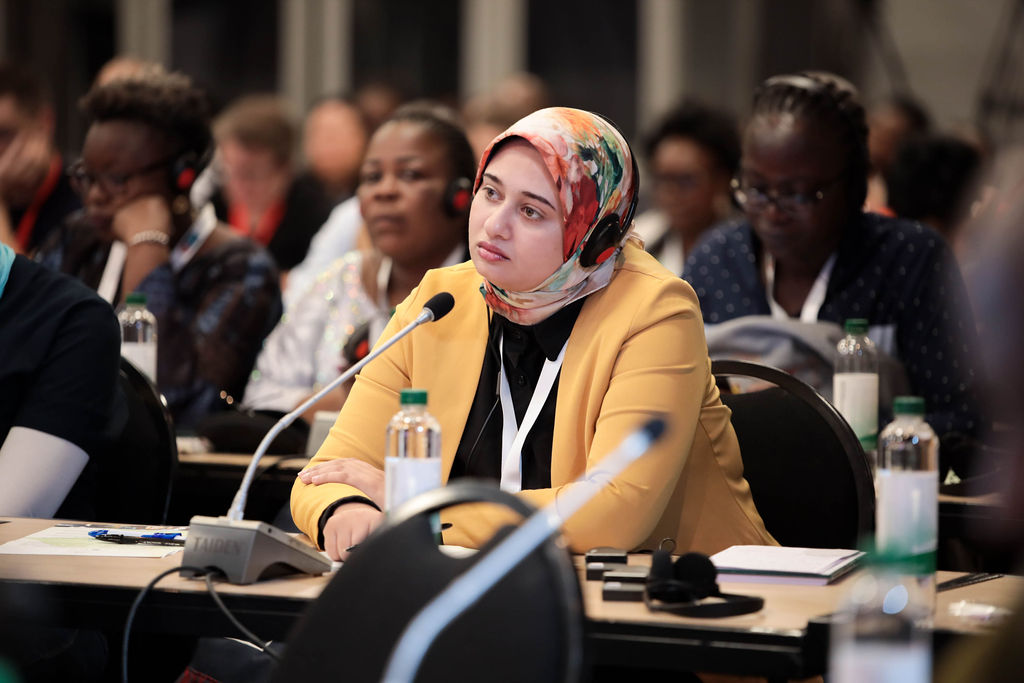
Since I graduated from university, I have loved the field of rights and freedoms, but I was not interested in the field of litigation. I worked in the legal field with people recently released from prison, both women and men, and in police departments and prisons. These activities made me gain a lot of experience in rights and freedoms and in the field of human rights. That is why I was attracted to working in law and the legal defense of the needy and those whose rights have been violated. I was interested in women’s studies, studying international conventions on the subject, working with women, and developing knowledge about the extent to which their rights have been safeguarded or not. Since then, I have been working in the field of law and as a trainer in the field of women’s rights, and I have succeeded in winning 60 civil cases in personal status law in favour of women.
Regarding the challenges facing women working in the field of law, Samia says:
I have faced many challenges. It is difficult to defend women and address the violence they are subjected to in the presence of resistant mentalities and lack of understanding, including among decision-makers as well as judges, most of whom refuse to adhere to the provisions of the CEDAW agreement and show bias in favour of men in most cases. This is obviously not everyone’s business; and working as a lawyer is another challenge in that most of the women I defend do not have enough money and, therefore, I do not have financial gain from this activity; but my passion is to always defend violated rights, and therefore my mission as a lawyer is difficult one, especially with regard to financial matters, not counting confronting judges whose rulings in favour of men are rather of a fanatical nature.
The selection of young women to participate in capacity building/strengthening workshops is a merit-based process; all participants must have benefited from the RiseUp! Leadership training. Samia is an active member of the YW4A programme. She was selected as a trainee after passing the required tests, and then she became an active member of the programme. Samia confirms that the YW4A programme played an essential role in her development as a lawyer and women’s rights activist.
Attending the training programme greatly opened my horizons. Thanks to the programme, I built a wide network of relationships with people from other countries. I shared and exchanged experiences and practices regarding the process of raising awareness about the laws and the rights of women. As a result of this programme, I participated in the Interreligious Convention, which allowed me to share my experience in human rights work in Egypt.
The YW4A programme also provided guidance when working on broadcasting podcasts about laws governing guardianship. It was a wonderful opportunity to raise awareness among women and young girls. Through these episodes, which were broadcast on social media, some of the leading members of the Bar Association showed interest, and they expressed their admiration and even wanted me to participate in the association’s activities to raise awareness among women and defend their rights.
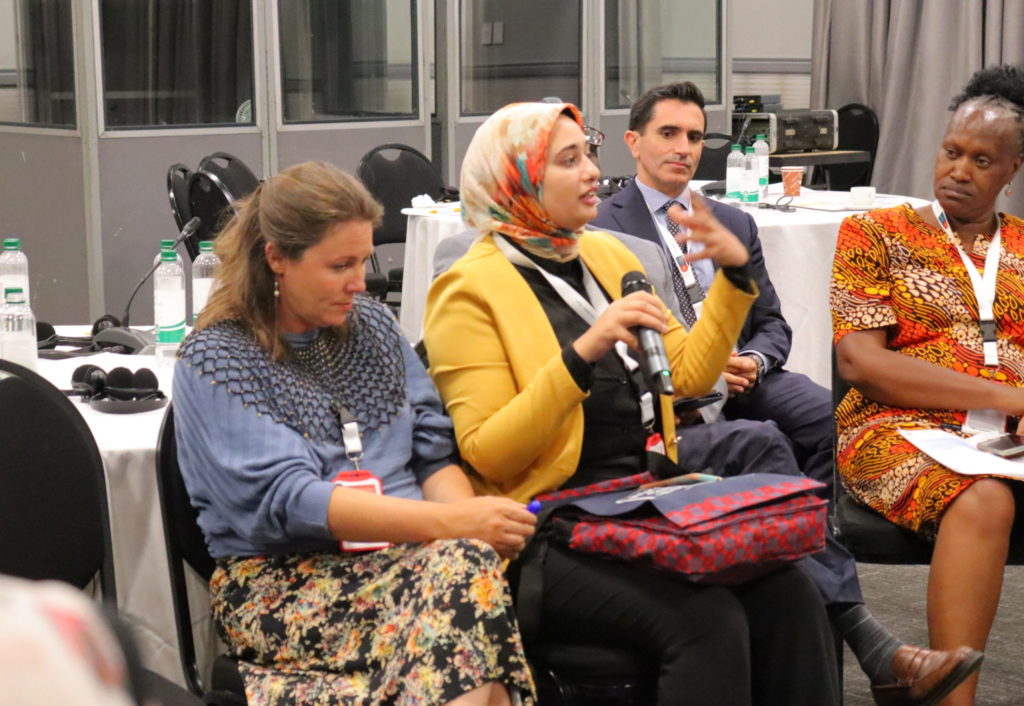
Samia continues,
The programme gave me many shared experiences and broadened my horizons. This nurtured many ideas to help women survive better, and this is clearly represented in the episodes of the podcast that have been produced so far as part of the 16 days of Activism Campaign of Advocacy against Gender-Based Violence in November 2023, which have had a great impact with a large segment of girls and women.
When asked about her motivation behind working on an eight-episode podcast about family law in Egypt, she declares:
As a lawyer specializing in personal status law, I have witnessed a lot of injustice and unfairness against women in this field, and I have participated a lot in discussion panels in order to remove such injustice; and therefore I loved raising awareness in women and young girls via the podcast, and I am almost certain that it has sparked controversy in a broad and very clear way on social media. I have also seen this in the interactions and comments of the viewers, as well as among lawyers and at the union level.
Samia then describes the suffering and the problems faced by divorced and widowed women in Egypt:
As for divorced women, their problems revolve around alimony, the difficulty of collecting it, and the fact that they are compelled to file an annual lawsuit to increase alimony, and this requires additional expenses. In addition, when minor children reach the age of 15, they must create a special power of attorney and file suits by themselves. This, in turn, creates problems and places great financial burdens on women; 8 out of every 10 divorced women face this problem. As for widows, they face challenges in their being the sole custodian of their children after their husband’s death; a widow may sometimes face stubbornness from her husband’s family. Likewise, 4 out of every 7 widowed women face such a case.
Widows also face legal obstacles regarding guardianship rights. Although guardianship often goes to the widow, it is subject to the supervision of what is called the Cadastral Council, and very often the family of the deceased husband annoyingly interferes in her life and the lives of her children.
Commenting on the positive changes she has observed in the Egyptian legal system regarding guardianship rights in recent years, Samia says:
I think that the new draft of the personal status law addresses many of the flaws and deficiencies in its provisions, as well as bias and discrimination based on gender. We hope it will be passed as soon as possible, cancelling what superseded it.
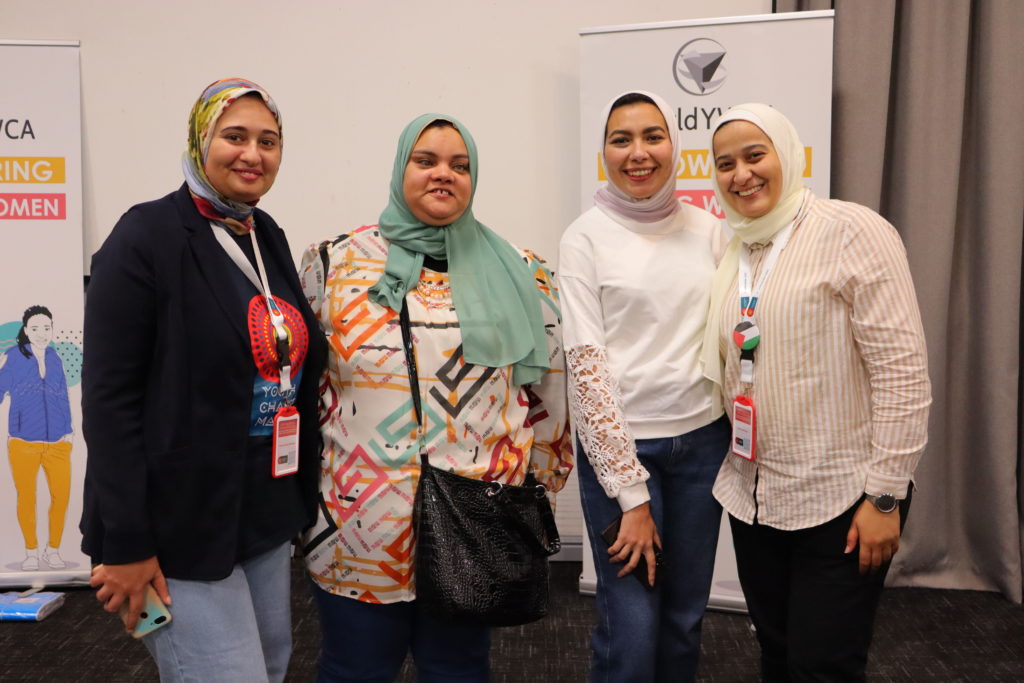
Regarding the future of family law in Egypt, she declares:
I hope that a single piece of legislation will be enacted and all that superseded it will be abrogated, and that the law will be fair and based on equality between parents regarding the guardianship of children, and that each party shall see its rights safeguarded without violating the rights of the other party.
As for the advice she gives to other women who face challenges related to guardianship rights in Egypt, Samia confirms:
You should always resort to a lawyer to be able to obtain your full rights, avoid making your children a tool to blackmail your husband, and try not to leave your children vulnerable to coming under the guardianship of others.
Samia concludes that she wants to raise awareness to the maximum extent among women and girls, so she stresses the necessity of planning more awareness campaigns, especially on social media, as it is an important tool for reaching a large population of women and girls. She advises girls and women to do their part to spread awareness to those who do not have the opportunity to follow these campaigns, and she appeals to them:
If a woman suffers, she must speak out so that we know what provision shortcomings or defects has, so that we can try to work on changing it. Defending rights and freedoms requires constant endeavour. It is a long road, and one person cannot continue to defend it alone, but we must always join forces to achieve what we aspire to.
